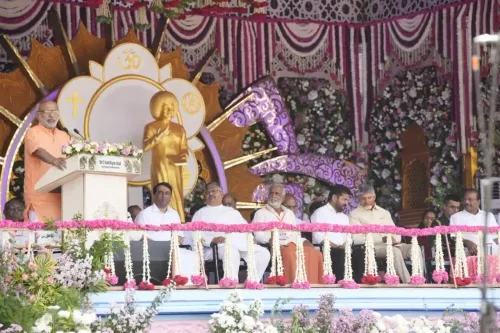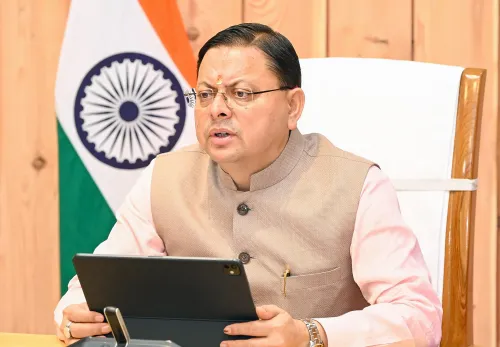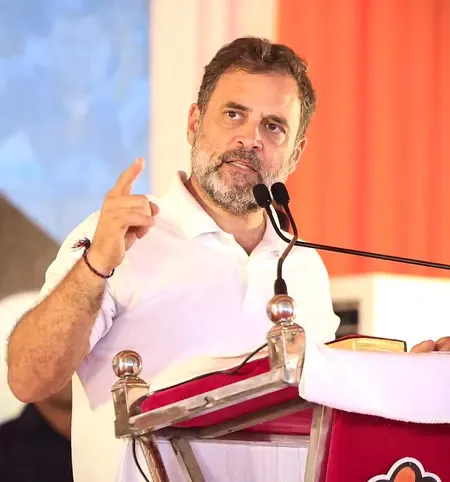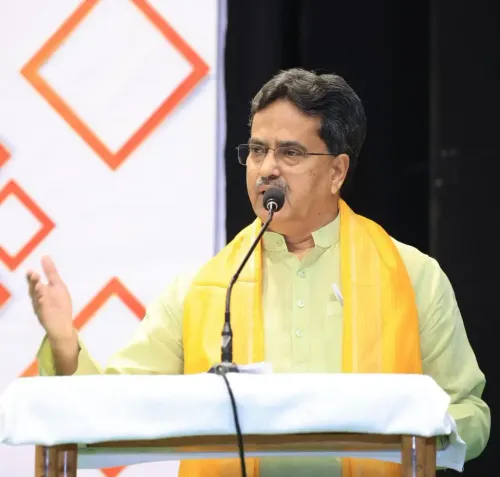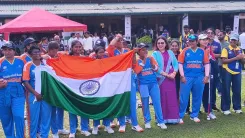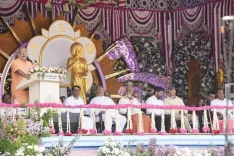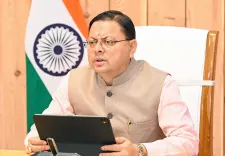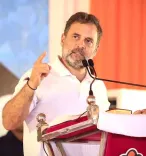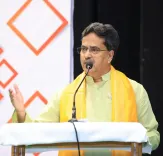Was the Emergency the First Assault on India's Soul?

Synopsis
Key Takeaways
- The Emergency marked a critical attack on India's democracy.
- It is essential to remember and learn from this dark chapter.
- Democracy is a value that must be upheld by all.
- Resistance to authoritarianism is vital for the health of democracy.
- Honoring those who fought against the Emergency is crucial.
Bengaluru, June 25 (NationPress) Union Minister for Heavy Industries and Steel H.D. Kumaraswamy remarked on Wednesday that the declaration of emergency by the late former Prime Minister Indira Gandhi represented the initial attack on the essence of India.
In a statement posted on social media platform X, Kumaraswamy asserted, "Fifty years have elapsed since those ominous days of the Emergency. It was the first significant strike against the soul of India and an egregious suppression of democracy. Half a century has gone by since that treasonous act."
During a time when the seeds of liberty were beginning to yield the fruits of a robust democratic framework, the then Prime Minister executed a disruptive alteration to the Constitution through an anti-people decree that was denounced by the nation then and must continue to be condemned today, Kumaraswamy added.
On June 25, 1975, the aspirations and hopes of all Indians were stifled. The Congress regime under former PM Indira Gandhi left a dark stain on India’s illustrious history, noted Kumaraswamy.
"Democracy signifies the rule of the populace. It is a distinctive principle of self-governance. Such a noble ideal must never again be infringed upon," he stressed.
He elaborated that democracy transcends a mere system; it embodies values, ideals, self-belief, and a grand tradition. "Let us unite in a pledge to defend and uphold the values of democracy," Kumaraswamy urged.
Former Chief Minister and BJP MP Basavaraj Bommai remarked, "The Emergency represents a blemish on India’s democratic fabric. The imposition of the Emergency endures as a somber episode in our national narrative."
During that era, the citizens of India displayed their capability to unite and resist—socially, culturally, and beyond political affiliations—to protect democracy, Bommai highlighted.
"Let us honor and pay our respects to those who bravely fought against the Emergency," he emphasized.
Tejasvi Surya, National President of BJP Yuva Morcha and BJP MP from Bengaluru South, stated, "Today marks 50 years since the Emergency, one of the darkest chapters in the history of Independent India. From political vendettas against opposition to the curtailment of civil liberties and intimidation of judicial officials—the entire nation was a casualty of Indira Gandhi's authoritarian rule."
Bharat will never forget the plight of ordinary citizens, nor will it forgive the Congress party for its merciless attack on the Constitution, Surya concluded.

